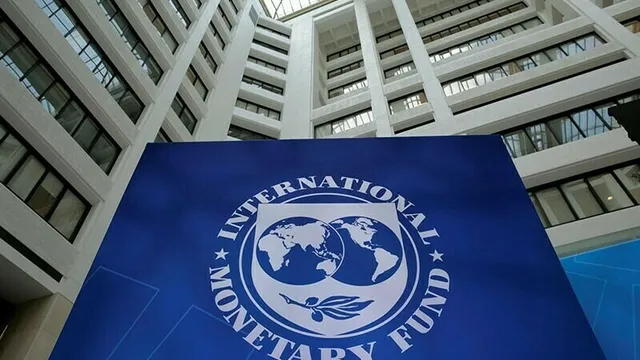
Pakistan government secures $1.3 billion loan from IMF for climate resilience
2025-03-26 05:03- Pakistan has secured a staff-level agreement with the IMF for a $1.3 billion climate resilience loan programme.
- The IMF has acknowledged Pakistan's progress in restoring macroeconomic stability, despite ongoing challenges.
- This deal represents a critical step toward addressing climate-related risks and promoting economic recovery in Pakistan.
Express your sentiment!
Insights
In March 2025, Pakistan announced a significant agreement with the International Monetary Fund (IMF), marking the achievement of a staff-level agreement regarding the first review of a 37-month bailout programme. This agreement allows the government to unlock a new $1.3 billion climate resilience loan, which spans 28 months and aims to aid in addressing severe climate-related challenges the country faces. Additionally, upon approval from the IMF board, Pakistan is expected to access $1 billion under the extended financial facility, bringing total disbursements under the programme to $2 billion. Nathan Porter, mission chief to Pakistan, highlighted the progress made by the country in restoring macroeconomic stability despite facing a challenging global environment. Over the past 18 months, Pakistan has focused on creating stronger fiscal policies, reducing inflation, and improving financial conditions, which have played a crucial role in stabilizing the economy. While inflation has seen declines and reached its lowest point since 2015, there remain concerns regarding elevated downside risks stemming from geopolitics, commodity prices, and global financial conditions. The government of Pakistan, led by Prime Minister Shehbaz Sharif, expressed optimism about the outcomes of the implemented policies devised through the IMF agreement. The finance ministry announced that while economic growth remains moderate, measures have been taken to further consolidate fiscal stability, assist with social spending, and strengthen public finances to encourage sustainable economic recovery. The loan agreement also symbolizes the government's commitment to ongoing structural reforms and a focus on addressing climate change through necessary adaptation measures. Overall, the arrangement reflects Pakistan's determination to enhance resilience against climate risks while pursuing economic stabilization measures. Despite facing difficulties arising from inflation and other pressing issues, the government plans to execute reforms associated with taxation, energy, and state-owned enterprises in a bid to maintain productive growth and build a robust economic future.
Contexts
The Pakistan IMF loan programme is a critical financial arrangement aimed at stabilizing the country’s economy, which has been facing multiple challenges in recent years, including high inflation rates, dwindling foreign reserves, and persistent fiscal deficits. As of March 2025, the programme is designed to provide Pakistan with much-needed financial assistance to help ensure macroeconomic stability and support structural reforms within the economy. The International Monetary Fund (IMF) plays a significant role in these efforts by offering financial resources alongside policy guidance to help the country navigate through these economic challenges effectively. The programme outlines a series of measures that the Pakistani government must implement to qualify for and continue receiving funding. Key elements typically include fiscal consolidation efforts aimed at reducing the budget deficit, reforming tax policies to enhance revenue generation, and implementing monetary policies to control inflation. Additionally, structural reforms may focus on improving the regulatory framework and enhancing the efficiency of state-owned enterprises. These measures are intended not only to stabilize the economy in the short term but also to foster sustainable growth and development in the long run. One crucial aspect of the Pakistan IMF loan programme is the associated conditions imposed by the IMF, aimed at ensuring that the funds are used effectively and lead to meaningful reform outcomes. These conditions can sometimes be politically sensitive and face opposition within the country, as they often require the government to make tough decisions that may impact social welfare, such as cutting subsidies or adjusting energy prices. The ability of the Pakistani government to successfully negotiate these conditions while maintaining public support is essential for the programme's success. In conclusion, the Pakistan IMF loan programme represents a vital lifeline for the country's economy, providing necessary resources to address immediate financial challenges while also promoting long-term economic reforms. The collaboration between the Pakistani government and the IMF is crucial to ensure the successful implementation of these reforms and the overall stabilization of Pakistan's economy. As the situation develops, it will be important to monitor the effectiveness of the programme and its impact on the broader socio-economic landscape within Pakistan.